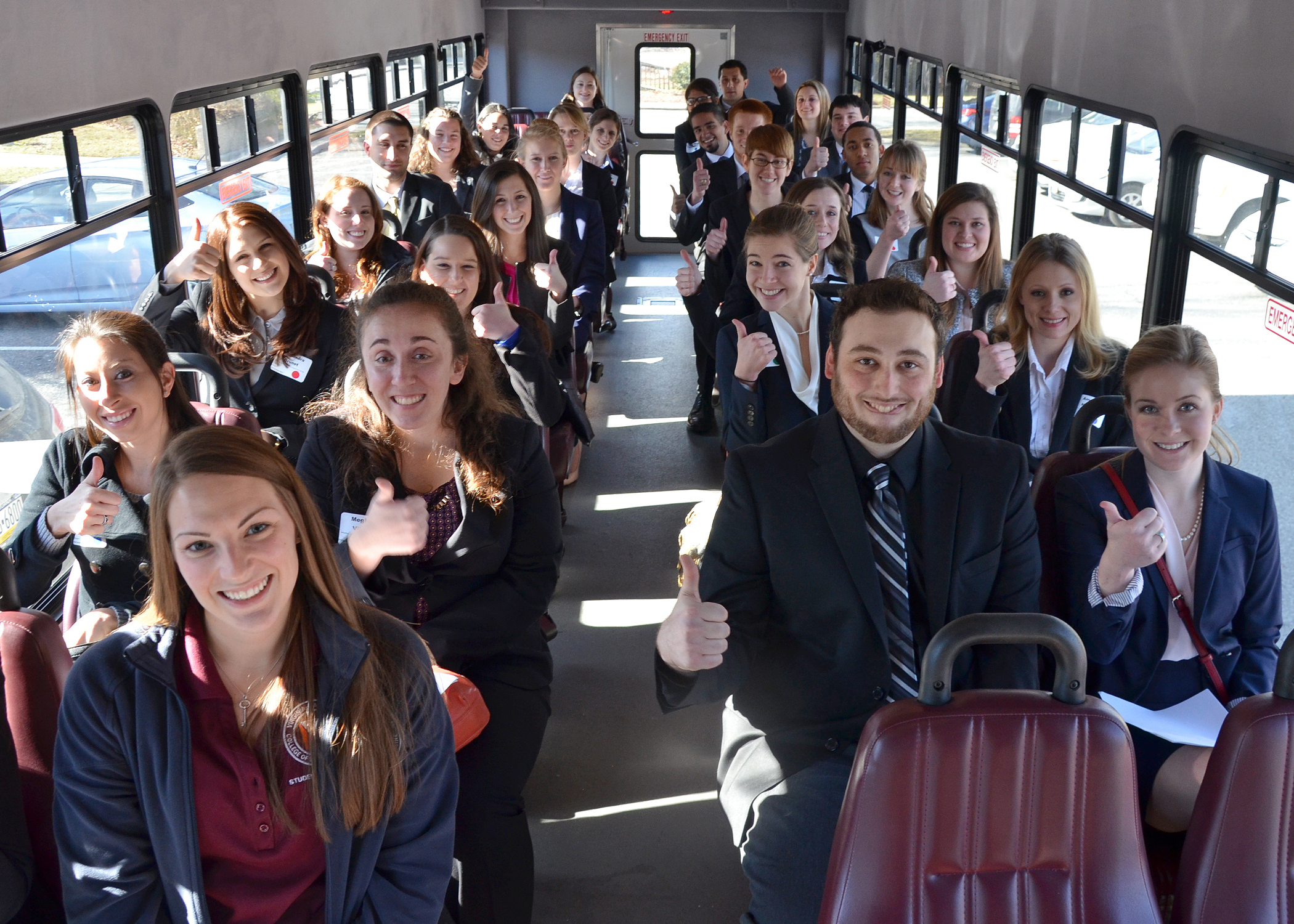Veterinary college attracts second largest applicant pool in North America

Prospective students have completed campus interviews at the Virginia-Maryland College of Veterinary Medicine that will help determine whether they spend their next four years in Blacksburg.
More than 1,200 individuals applied to begin studies at the veterinary college this fall, representing the second largest applicant pool in North America, according to figures from the Association of American Veterinary Medical Colleges (AAVMC). The college invited 312 applicants for the Class of 2019 to complete interviews on Jan. 17-18 for 120 available seats at the college.
“These individuals rose to the top of a highly competitive application process,” said Dr. Jacque Pelzer, director of admissions and student services. “We’ll be notifying them about whether they have been accepted into the veterinary college next month.”
In recent years, the college has accepted approximately 40 percent of those interviewed into its Doctor of Veterinary Medicine program and its popularity as a “college of choice” has continued to increase. It had the third largest U.S. applicant pool in 2014 and the fourth largest in 2013.
Prospective students apply to their top three schools of choice through the Veterinary Medical College Application Service, a common application administered by the AAVMC, and are then considered for a campus interview. In 2009, the Virginia-Maryland College of Veterinary Medicine became the first U.S. veterinary school to adapt the multiple mini-interview format — first developed at McMaster’s Medical School in Canada — for use in a veterinary program. Today, a handful of other veterinary colleges have adopted this approach.
Following the interviews, several prospective students wrote to the college about their appreciation for the interview format. “I really enjoyed the whole process and was thoroughly impressed with your attention to detail,” wrote one interviewee. “It was obvious that [the veterinary college] values its students and their well-being, which definitely made me feel more at ease throughout the whole interview process.”
Another added, “The opportunity to visit your campus and meet some of your current faculty and students fueled my enthusiasm toward beginning the DVM curriculum at Virginia-Maryland and becoming actively involved in your program.”
According to Pelzer, the multiple mini-interview format is an ideal way to assess a candidate’s potential for success in a competency-based curriculum like the veterinary college’s. During the process, interviewees rotate through interview rooms where an interviewer evaluates their response to a scenario dealing with communication, critical thinking/problem solving, individual and team management, entrepreneurship, and ethical and moral decision making. New this year was a scenario that assessed the candidate’s understanding of cultural diversity, its importance, and its impact on the future of the profession.
“This year’s prospective student weekend had 32 interviewers, including faculty members, current students, and veterinary practitioners in the region,” Pelzer said. “Many of them were also alumni of the college.”
Each candidate goes through the same set of mini-interviews at Virginia Tech’s Smith Career Center, which is ideally set up for the process. Pelzer explained that there is no right or wrong answer to the scenarios presented to them.
“Instead, we trying to determine whether the prospective students have a broad understanding of the competencies and know how to interact well with those they will be serving as veterinarians,” Pelzer said. “Because veterinarians are serving a society with many points of view, it is important that our students have the ability to work with people who may not hold the same beliefs or values as them.”
Student ambassadors provided candidates and their families tours of the college and its Veterinary Teaching Hospital. Candidates also had an opportunity to learn more about the program and life as a veterinary student at a dinner held the evening before the interviews. This not only helped answer any lingering questions they had about the interview process that awaited them the following day, but also gave them a chance to speak in small groups with student ambassadors.
The Class of 2019 candidates hailed from 27 states and 12 countries of citizenship outside the United States, plus Puerto Rico. They are vying for 120 available seats. Of these, 50 will be from Virginia, 30 from Maryland, six from West Virginia, and the remainder from elsewhere. Both Virginia and Maryland students are considered in-state at the regional college.
Written by Michael Sutphin.








